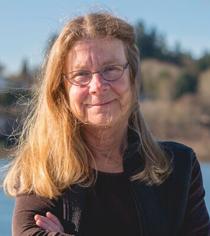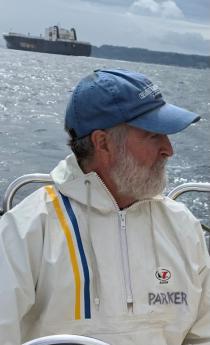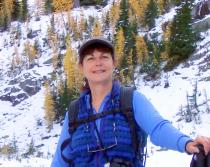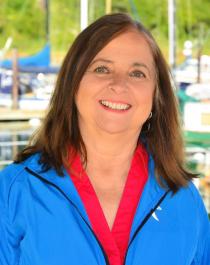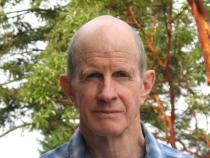
WDFW Commissioners On What They Heard About Conservation Policy
Last week, the Washington Fish and Wildlife Commission spent two days at the firehose that is public comment taking feedback from sportsmen, conservation groups and others on its draft Conservation Policy, but what did the actual members of the citizen panel take away from all that input in Seattle?
A realization that hunters and anglers have legitimate concerns about the document, that it needs more word-smithing, there needs to be better communication about what the commission is trying to address and what they are or aren’t trying to take away, there’s going to be disagreement and that’s the way it is, and that the policy may not have the widespread support some believe it to have.
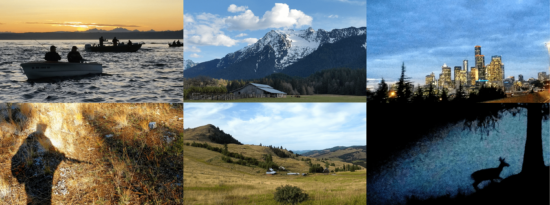
Those are some of the takeaways one can glean from Friday afternoon’s meeting “debriefing” (discussion begins at 4:49:00 on TVW), that moment at the end of their work when commissioners go back over what they’ve just heard, how they processed it, and what more information they might need before taking a next step.
For Chair Barbara Baker of Olympia, who had a hand in coauthoring the draft and editing it numerous times, her warning about “hot buttons in every single paragraph” came home to roost, and how.
“Heck, I did not know that there was a fricking big difference between ‘preservation’ and ‘conservation.’ Did not know when (former WDFW Director of Conservation Policy) Jeff (Davis) and I condensed this. And I thought … the fact that we say that our mandate is to preserve, yeah, that makes sense. Well, no, it’s a big difference to people and it only comes up a couple of places, but it’d be pretty easy to fix,” she stated.
They’re huge concepts, but you might simplify conservation to stewarding resources for their long-term health and human use, while preservation is stewarding resources for their long-term health alone. The mandate, as stated in the first line of the Revised Codes of Washington for the commission and WDFW, is to “preserve, protect, perpetuate, and manage the wildlife and food fish, game fish, and shellfish in state waters and offshore waters.”
Continued Baker, “We’re gonna have to have discussions about what that means to the people who were yelling at us today or yesterday, because it fuels their fear where possibly it isn’t warranted. We aren’t going to turn our lands into parks. That’s not what the intention is of this. Maybe it is, maybe I just don’t know. So that’s a discussion we have to have.”
Commissioner Steven Parker of Yakima, appointed to the commission in early March and a relative newcomer to the debate, was “very surprised and a little bit shocked at how polarized” the testimony had been.
“It just seems to me, if there is one thing everybody in this room ought to be able to agree on, it’s conservation. And so it seems to me that all we need to do is find the right words,” he said.
If Parker had his druthers, a final policy would be one that nobody liked, a suggestion that didn’t sit well with some of his colleagues, who laughed and disagreed.
“In my experience,” he defended, “that is generally a durable agreement, the one that nobody is particularly fond of but can live with.”
In Parker’s perception of some of the public comments, sportsmen are “very uncertain” about their future and that of WDFW.
“And so they understandably, I think, because of that uncertainty, are hypersensitive to any language that suggests that the department may be going in a different direction, an uncertain direction that potentially leaves them out or diminishes their standing,” he said. “And I’m afraid that sometimes when we get careless in our language and we talk about new directions or the new priorities for the department and things of that nature, that is just blood in the water for them.”
He felt the commission needs to be “very deliberate” in its word choices about the future shape of WDFW.
Commissioner Melanie Rowland of Twisp did not agree with having to find the exact right words, and she defended one of the policy’s hot-button phrases – “intrinsic value of nature” – as centered around the natural world having standing in court.
“I personally don’t think that we are gonna come to agreement with any of the people who are very concerned about us moving to a place where somebody other than humans has intrinsic value. They’re really concerned about that. And I understand it. It’s not their world, it’s not the world they were raised in, it’s not their community,” she stated.
The draft also includes “conservation first” and precautionary principles.
With changing views about nature sweeping the world, Rowland felt that the commission needed to acknowledge the disagreement, “but then we have to move on.”
While Rowland was mostly addressing Parker, her words could also be seen as a response to (and confirming) WDFW Director Kelly Susewind’s observations from the side of the tables his bosses sat at.
“I think when we listen to the public, we do a great job of listening to the public, but we aren’t demonstrating active listening,” Susewind said. “We exude an atmosphere of ’We’re listening, but you’re wrong,’ as opposed – and we’re not gonna agree; I agree with that – but we don’t come across as, ‘We’re listening, we understand your point of view, we have taken that into consideration, and here’s our best articulation of where we’re gonna go and why.'”
Susewind stated that he was willing to bring in WDFW’s Communications and Public Engagement, or CAPE, group, on the issue, but he added that it wasn’t so much about communications as it was social science.
Earlier in the meeting debrief, Commissioner Lorna Smith of Port Townsend had brought up bringing CAPE into a subcommittee to talk about messaging around the draft policy, how it’s being received and whose fault that is or isn’t.
“The message seems to be getting out that we have this hidden secret agenda and it’s gonna upset everybody’s apple cart. And that seemed to be a very pervasive message with a certain part of our audience. Not the majority, but a significant minority. And is there a way to correct, set the record straight, so to speak, on that?” Smith wondered.
That might be a pretty big task, given the “mixed signals” WDFW Deputy Director Amy Windrope believes are being sent out by fish and wildlife overseers about the policy, “which is why I think it … gives the sense that people are being a little bit manipulated, depending on where they are sitting.”
“When we first talked about the Conservation Policy [on Thursday], Chair Baker and the director talked about how this is in alignment with what we’re doing now. And then when people talked about what it means, then, you know, Commissioner Rowland talked about, ‘This is overarching, it’s gonna change what we do.’ And there’s a sort of a breadth of it. So which is it? And I think people struggle to know, ‘Are you changing everything or are you just stating what you’re doing with small tweaks?’ And I think we haven’t been clear about it. And I think different commissioners are seeing it differently, which leads I think people to be worried,” Windrope said.
And also becoming confrontational with the commission, which led one commissioner to respond in kind Thursday.
“I think that our method of communicating with the public is sort of broken from my standpoint,” acknowledged Commissioner John Lehmkuhl of Wenatchee. “It’s like we’re talking at each other, right? So we get three-minute sound bites from people in the audience, and then we have our three-minute sound bite maybe. We never really have a conversation about things and try and work out issues, particular issues that we have … I think it doesn’t work for me very well, as you saw yesterday.”
For Commissioner Tim Ragen of Anacortes, having a Conservation Policy is about a structure of specifically defined terms behind what WDFW and the Fish and Wildlife Commission do.
“We do that with, well, I hate to keep saying it, but the Marine Mammal Protection Act. We have gone through decades of struggle … trying to define, ‘What exactly does it mean to be a healthy ecosystem?’ ‘What exactly does it mean to be a strategic species or a depleted species?’ And we have objective criteria for that, and we have a lot of structure around us in terms of the laws and what they require … I think it’s helped. When I sit and work with the staff and they cite something to me, that is really helpful … That tells me that they are working with that structure,” Ragen said.
As members came to a close on the topic, Commissioner Smith summarized that she’d mostly heard support for the draft policy.
“By far, the majority of people who testified over the last several days liked the Conservation Policy. The majority did. There was a vocal minority, and they were well represented, who did not. And we should be responsive to their concerns and see if they can be addressed. But I don’t think we have to beat ourselves up that we, like, way missed the target when most of the people thought we came pretty dang close. So I think we still did a good job. Congratulations. We’re gonna work on it and see if we can bring some more people into the circle. But I’m pretty pleased with the two days, frankly.”
That the “majority of people” who spoke supported the policy didn’t exactly square with Vice Chair Molly Linville’s math, however.
“So I kept track and there were 15 against the Conservation Policy and 13 for,” the Douglas County rancher stated.
“I heard a lot more than 13 people testify,” replied Smith.
“Data,” responded Linville, holding up the piece of paper on which she’d counted those for and against the policy.
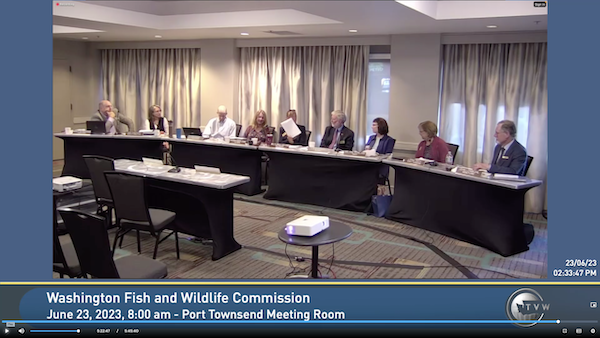
In a way, the waving of the paper was a gotcha moment like the one Smith pulled several months ago when she brandished the draft results of a WDFW public survey she and Rowland had gotten ahold of before it had been widely distributed to agency brass.
While Baker didn’t think the exchange was helpful one way or the other, Windrope left the commission with an observation on what it all might have signified.
“Wherever we go, we have to be super mindful that we’re only getting a nonrepresentative sample of the citizens of Washington. We have to be mindful of that,” she stated.
Both the national Rocky Mountain Elk Foundation and the far smaller Washington Wildlife First were driving supporters to comment on the policy, with the latter group also organizing a series of events around the meetings.
Still, for King County hunters – yes, they exist – to have turned up and voiced their feelings on the draft Conservation Policy in such relatively strong numbers in Seattle is notable and to be commended.
Look, I’m just one bozo who does lots of werds, but in my opinion I think the entire debate is an unforced, all-around error by the commission that needlessly alienates hunters and anglers, the body’s strongest traditional supporters. I do recognize that the natural world is changing fast and I’m worried too, but I question the origins, timing and rationale. I think it’s unlikely the policy would spell the end of Washington’s sporting heritage, as some of us fear, but if the document could be made more specifically inclusive of us – and, yes, other groups, because they have a stake – and written in plain English instead of buzzwords, maybe I’d be more supportive of it.
Last Friday, when Idaho said Colorado couldn’t have its wolves, I bolded a section of IDFG Director Jim Fredericks’ letter that really resonated with me: “Now more than ever, durable wildlife conservation involves people with differing values working together to achieve shared objectives … Collaborative conservation efforts are built on trusting relationships.”
And I think that is going to have to be all I say about that because now I got a kid bugging me about cooking dinner for the fam.
As it stands, comment on the draft Conservation Policy continues through June 30. Go here to add your thoughts, email draftconservationpolicy@PublicInput.com or call (855) 925-2801 and enter code 4262 to leave a voicemail.
The commission is currently scheduled to make a decision on the policy at its October 26-28 meetings in Olympia.

